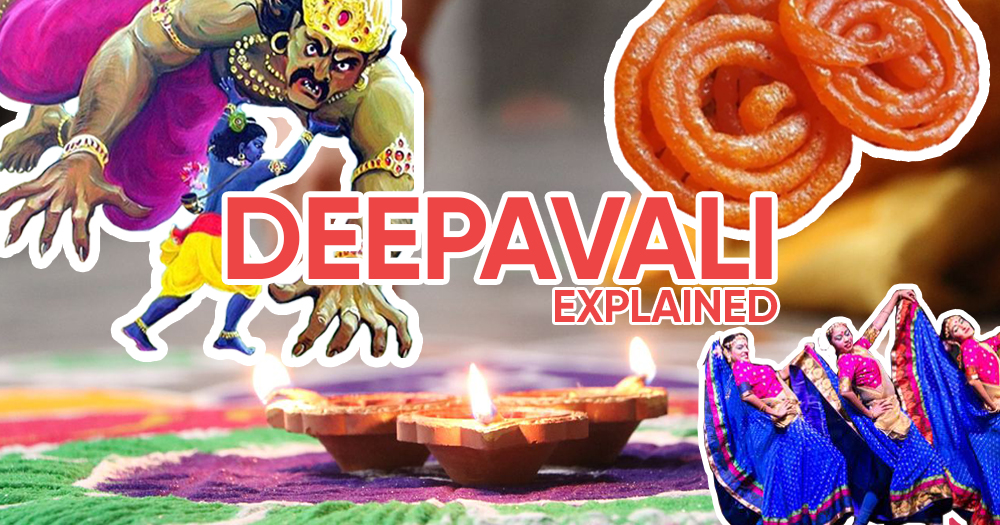With Deepavali happening on Nov. 14 this year, the festivities will be quite different from past years, due to Covid-19, as people won’t be able to experience the bustling bazaar along Campbell Lane in Little India.
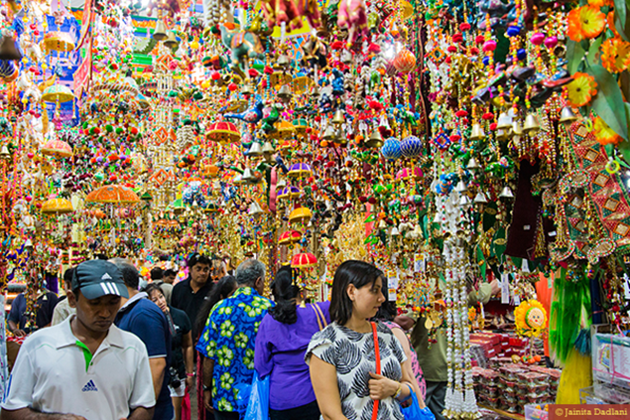 Photo by STB
Photo by STB
Instead, the Deepavali Festival Village will be going online for the first time, where merchants will showcase their goods on the Little India Shopkeepers and Heritage Association's (LiSHA) Facebook page from Oct. 10 to Nov. 10.
As for gatherings in the home, family visits could see smaller groups, no more than five, visiting loved ones.
However, the spirit of the colourful and joyful festivities won’t be dampened by the pandemic.
Instead, celebrating Deepavali can be more meaningful during this eventful 2020 as the festival signifies good triumph over evil.
Why do people celebrate Deepavali?
While some might mistake Deepavali as the Tamil New Year, they are actually two different events, with the latter happening around April every year.
Known as the festival of lights, the origin of Deepavali can be traced back to various myths, according to the cultural groups that celebrate it.
The origin of the word “Deepavali” comes from the Sanskrit phrase which means “row of lights”.
South Indians
For South Indians, Deepavali is signified by the slaying of the cruel demon king Narakasura by Lord Krishna.
As the demon king oppressed his people and made his people fear him, his rule is signified by darkness while the killing of the demon is signified by light triumphing over darkness.
North Indians
For North Indians, Deepavali is celebrated to commemorate the slaying of the demon Ravana, according to a myth form the Indian epic, Ramayana.
The story centres around Lord Rama who is exiled from his kingdom for 14 years.
After defeating the demon Ravana, Lord Rama returns to claim his throne with his wife Sita and brother Lakshmana.
To celebrate Lord Rama’s return, his people lit up their home with clay lamps.
This is why on the day of Deepavali, you might see people lighting up clay lamps or playing with sparklers.
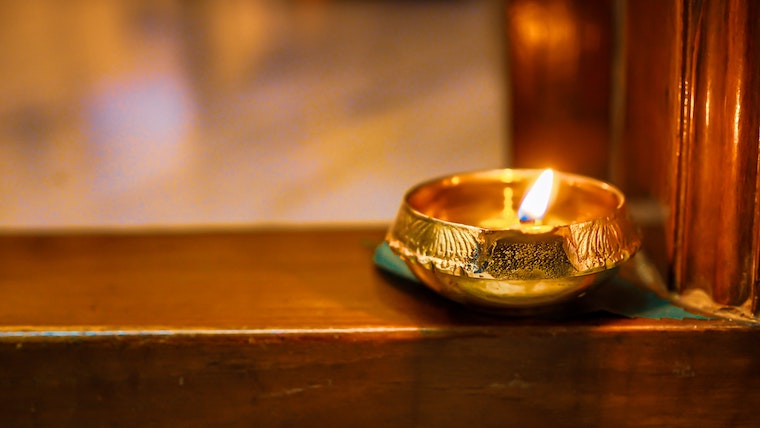 Photo via Manoj Kumar Kasirajan/Unsplash
Photo via Manoj Kumar Kasirajan/Unsplash
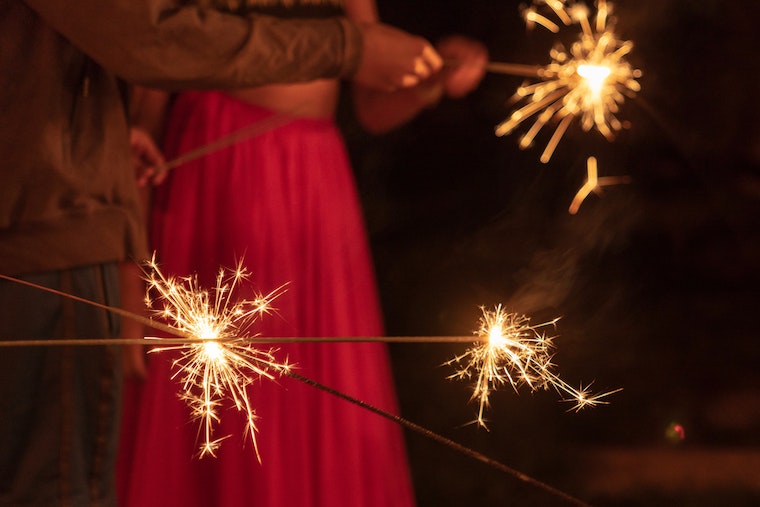 Photo via Madhukar Kumar/Unsplash
Photo via Madhukar Kumar/Unsplash
North Indians might also wish each other “Happy Diwali”, similar to the greeting “Happy Deepavali”, which South Indians use.
Sikhs
As for Sikhs, a small ethnic group that originated in the Punjab area in northwest India, Deepavali is celebrated in memory of the sixth Sikh guru, Guru Hargobind, who was freed from imprisonment by the Mughal Emperor Jahangir during Deepavali.
Goddess of wealth & beauty Lakshmi
Some also associate Deepavali with the goddess of wealth and beauty, Lakshmi.
People believe that having a well-lit home during Deepavali will invite wealth and good fortune into their homes.
While there are many variations to the reason why people celebrate Deepavali, the unifying theme is the concept of good triumphing over evil.
Celebrating Deepavali with colourful traditions
To celebrate this year’s festivities, the LiSHA has prepared an exciting lineup of virtual and offline events, aligned with the traditions of Deepavali.
Deepavali Street Light Up
To outshine darkness with a large quantity of lights, Serangoon Road and Race Course Road will be bedazzled during the Deepavali Street Light Up from October 3, 2020 to December 6, 2020 between 7pm and 12am daily.
Visitors to Little India will be able to see various lights which are shaped like peacocks, lotus flowers and oil lamps.
If you’re keen on taking photos of the colourful streets, just remember to adhere to safe distancing measures and always have your mask on (unless you are munching on yummy goodies).
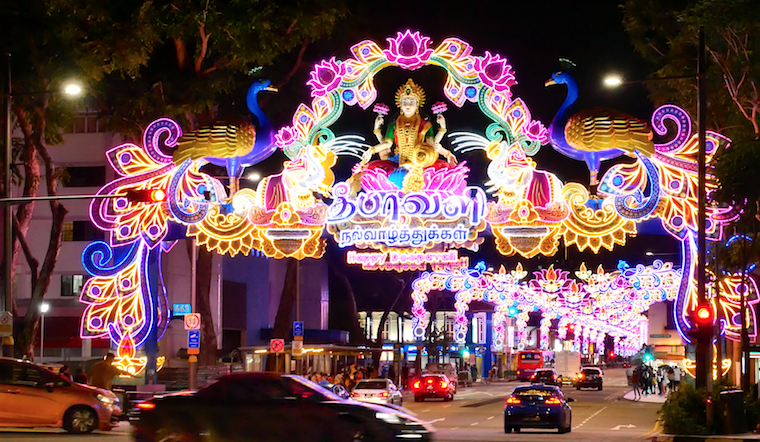 The theme for this year’s lightup is Goddess Mahalakshmi, the goddess of wealth in Hindu mythology. She is featured on the main arch in Serangoon Road sitting on a lotus flower, with two elephants anointing her with water. Photo by LiSHA
The theme for this year’s lightup is Goddess Mahalakshmi, the goddess of wealth in Hindu mythology. She is featured on the main arch in Serangoon Road sitting on a lotus flower, with two elephants anointing her with water. Photo by LiSHA
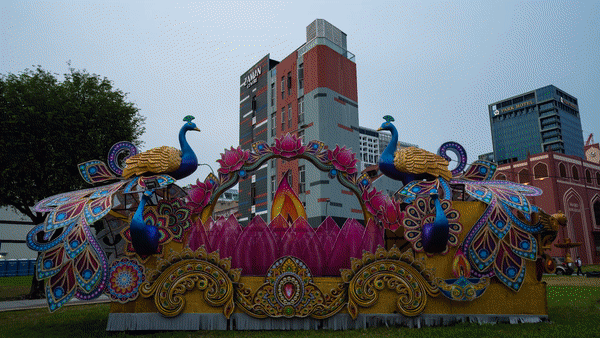 Timelapse of this year’s lightup by LiSHA
Timelapse of this year’s lightup by LiSHA
There are also many opportunities for Instagram shots, as seen below:
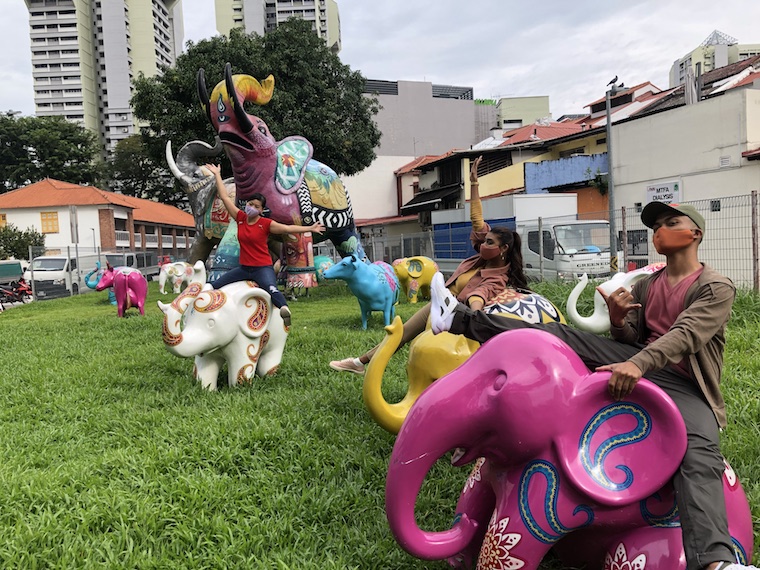 Photo by LiSHA
Photo by LiSHA
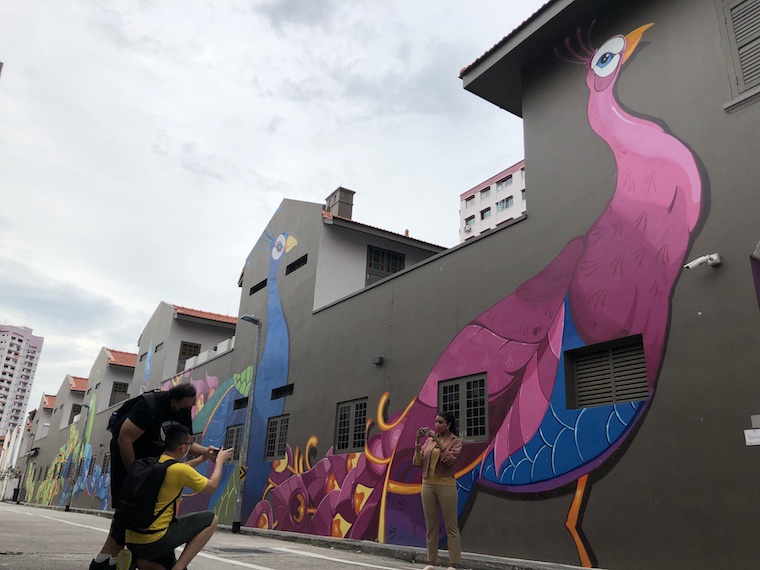 Photo by LiSHA
Photo by LiSHA
Learn how to cook a feast for Deepavali
What are festivities without mouth-watering dishes to fill our stomachs with?
Forget prata. Indian cuisine has a multitude of sumptuous dishes to offer, from thosai (a pancake made from fermented rice batter), to idli (a rice cake).
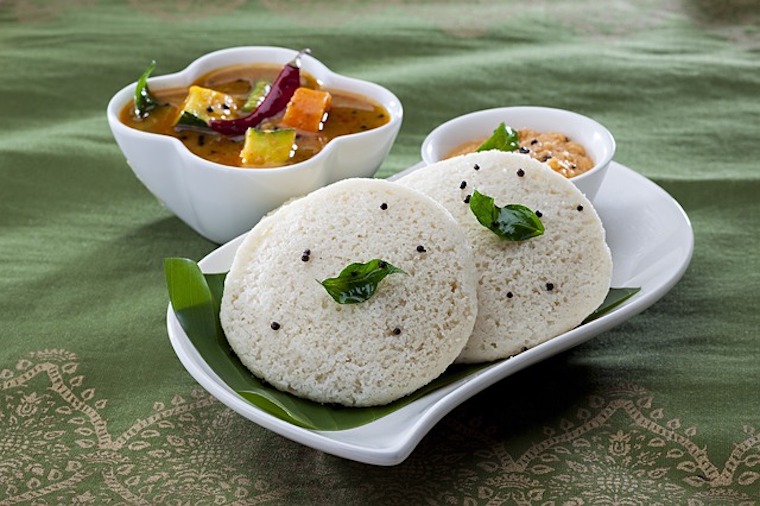 Photo of idli by mcthrissur/Pixabay
Photo of idli by mcthrissur/Pixabay
And let’s not forget about traditional Indian sweets, such as palkova (milk sweet), jalebi (deep fried dessert) and laddu (ball-shaped sweet).
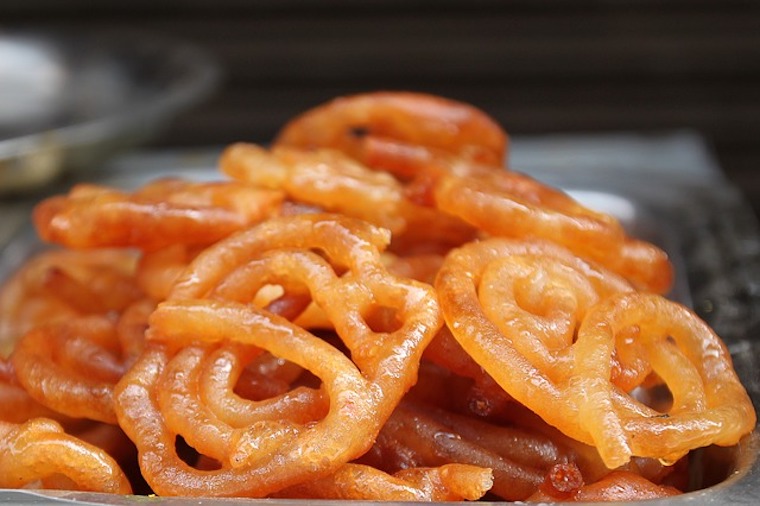 Photo of jalebi by M Ameen/Pixabay
Photo of jalebi by M Ameen/Pixabay
If you’re not much of a cook (and enjoy feasting instead), you can participate in the Deepavali Gastronomy initiative which will happen at selected restaurants in Little India.
Foodies can look forward to special Deepavali renditions of signature dishes that will only be available for a limited period of time between Oct. 14 to Nov. 22.
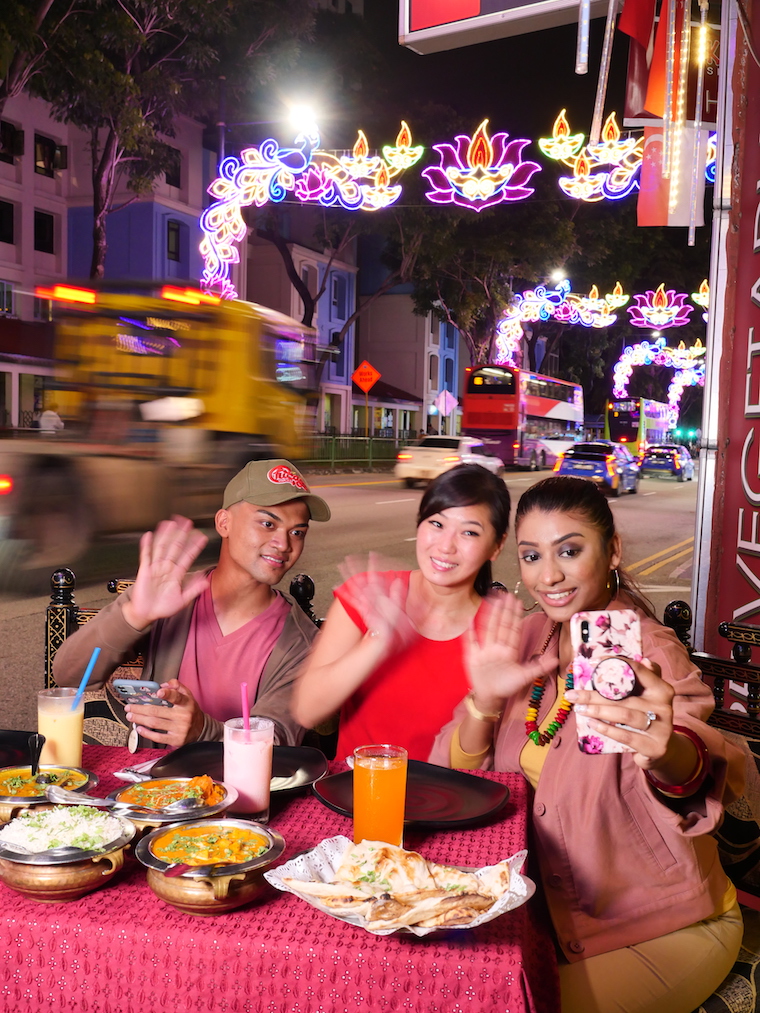 Photo by LiSHA
Photo by LiSHA
To find out more about the various dishes, you can follow LiSHA’s Facebook page or visit their website.
In addition, there will be a competition to encourage dine-in patrons to take photos of the special dishes and the winner will walk away with food vouchers from participating restaurants.
For those who are keen on cooking up a storm in the kitchen, LiSHA will also be organising two free Deepavali Masterclasses to help participants to learn how to prepare Deepavali delicacies.
The masterclass will be held online on Oct. 31, 2020, and will introduce participants to special cooking techniques and feature special ingredients.
The online session will be conducted by a local chef from selected restaurants at Little India and will be limited to a maximum of 100 participants.
After the masterclass, participants can upload videos of the dishes they prepared in class for a “Best Presentation” competition, which will be judged by a panel of chefs from the Indian Chefs and Culinary Association (Singapore) and stand a chance to win attractive prizes.
Decorating the home
In addition to lighting up the home with oil lamps, those who celebrate Deepavali also decorate their doorsteps or the floor of their living rooms with rangoli, an art form created with coloured rice, dry flour, coloured sand or flower petals.
For rangoli that’s made of coloured sand, you would slowly pour the sand from your hand into the pattern that you desire:
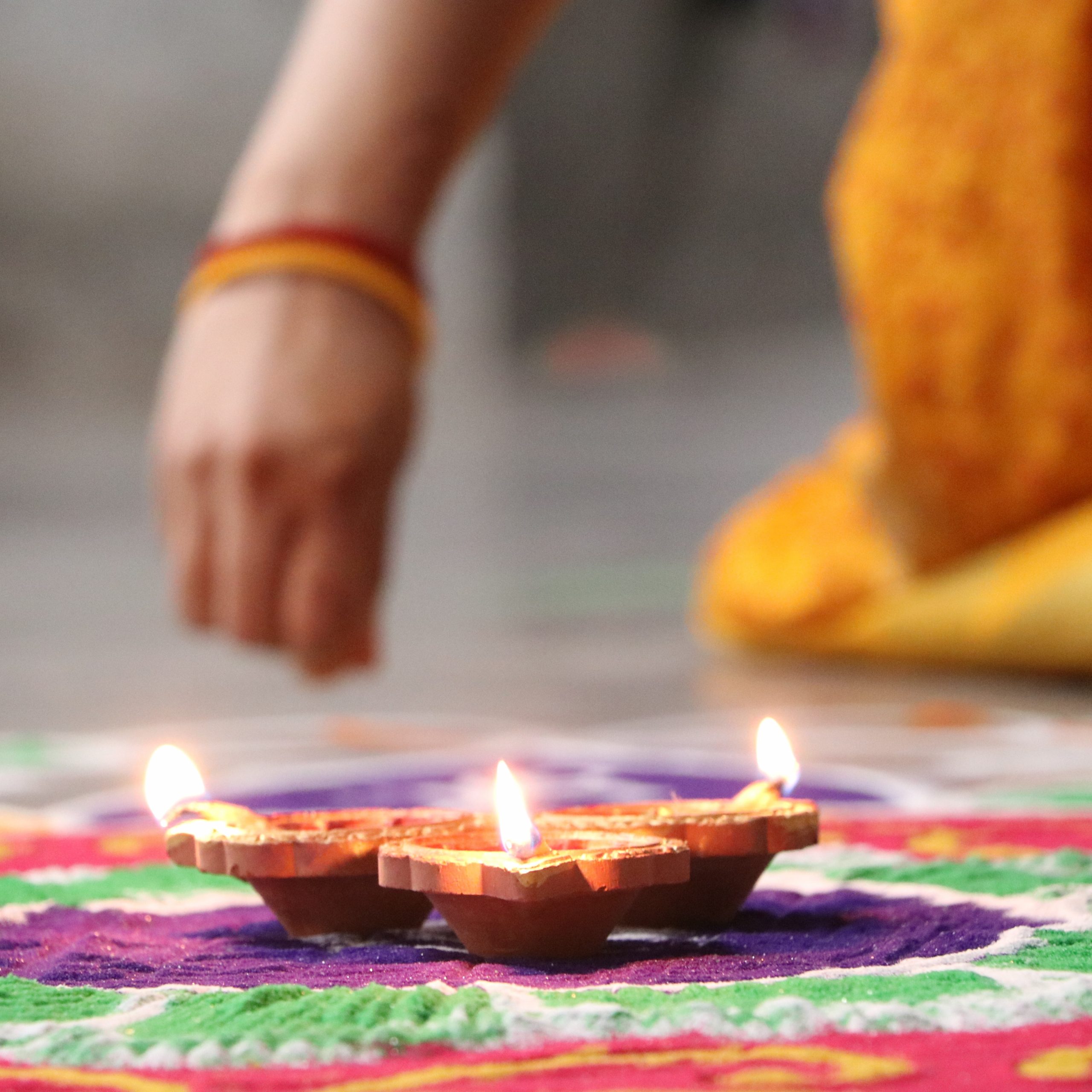 Photo via Sandeep Kr Yadav/Unsplash
Photo via Sandeep Kr Yadav/Unsplash
Here’s a rangoli that’s made of flower petals:
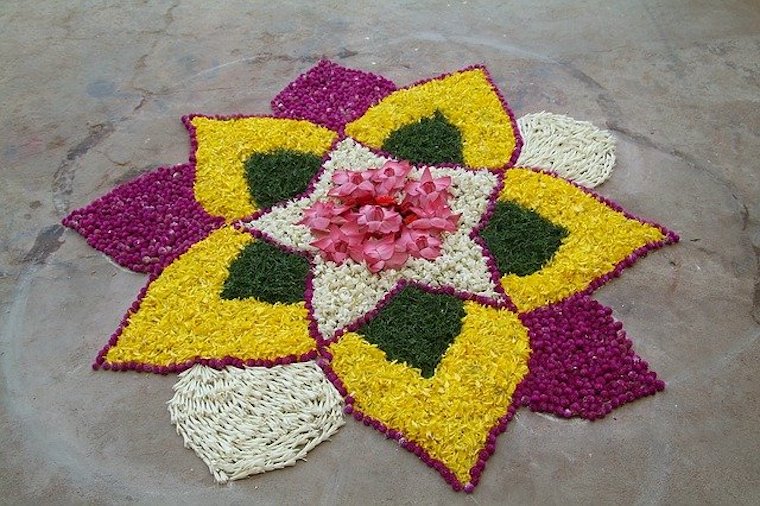 Photo via skeeze/Pixabay
Photo via skeeze/Pixabay
If you are keen on learning this art form, LiSHA will be organising an online Rangoli workshop on Oct. 17 and will be conducted by Vijaya Mohan, a well-known award-winning rangoli artist.
Vijaya has numerous awards from the Guinness and Singapore book of records and her workshop will be open to both local and international participants.
A registration link to the workshop will be put up on LiSHA’s Facebook event page.
There will also be a competition for participants of the rangoli workshop using the hashtags, #thedeepavalist #deepavalilightup #deepavalisg #deepavaliLiSHA #VisitSingapore #VisitLittleIndia #LittleIndia, to submit their works of art and stand to win attractive prizes.
If you would just like to appreciate rangoli designs made by others, you can visit Hindoo Road during the festivities as LiSHA will be inviting members of various Voluntary Women’s Organisations to create works of rangoli art for display to the general public.
Costumes & henna
Another key part of celebrating Deepavali is the costumes and temporary body art, such as henna.
Often applied on the palms and hands, henna can be done at home if you are patient and keen on experimenting your own patterns.
Henna is also known as maruthani (in Tamil) or mehendi (in Hindi), and is usually applied during weddings and major celebrations.
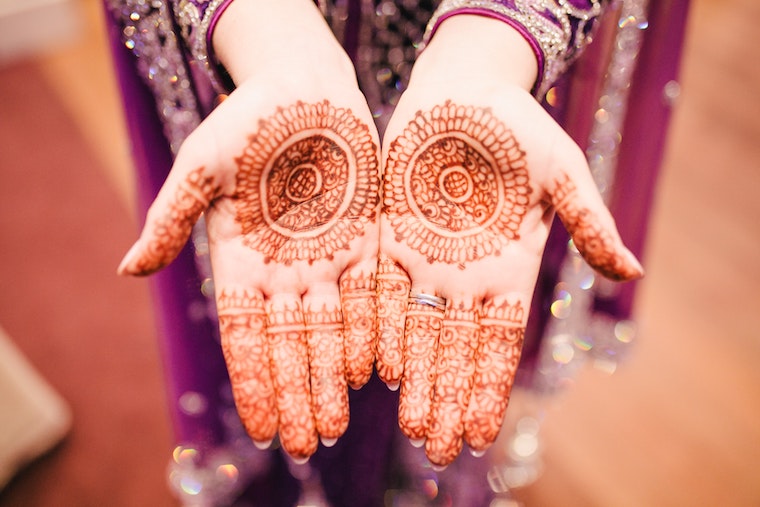 Photo of Henna patterns via Photos by Lany/Unplash
Photo of Henna patterns via Photos by Lany/Unplash
If you need some guidance on the intricate designs, featuring paisleys, mandala and other motifs, you can join in the Art of Maruthani – Henna Workshop happening on Nov. 7.
The online session, conducted by an experienced henna artist, will teach participants some attractive simple designs and will be limited to 70 participants.
Participants can upload their creative designs on LiSHA’s Facebook page and use the following hashtags, #thedeepavalist #deepavalilightup #deepavalisg #deepavaliLiSHA #VisitSingapore #VisitLittleIndia #LittleIndia, as part of an online competition.
Unless you’re a talented artist, this might be what it would look like:
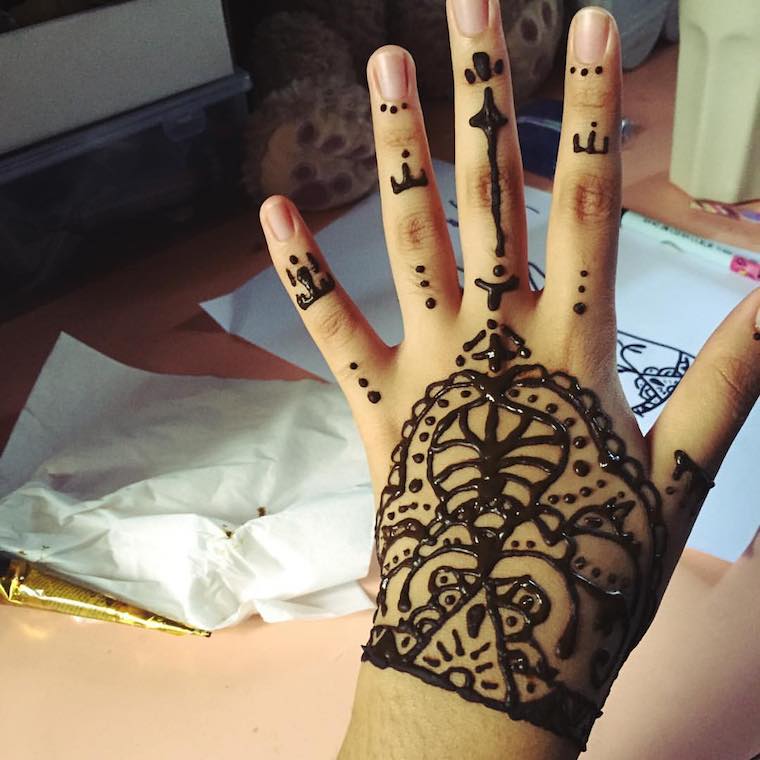 I tried out doing my own maruthani design and this is what it looked like. Photo by writer
I tried out doing my own maruthani design and this is what it looked like. Photo by writer
To learn more about the Deepavali story, traditional Indian costumes, you can tune in the Dheebam - Deepavali Story on November 7 at 7pm.
The 30-minute virtual storytelling session will be narrated in English and will feature interaction between the artists and the online audience.
The drama will be aired online on LiSHA’s Facebook page.
The virtual drama will feature dance items and artists in colourful costumes and special props.
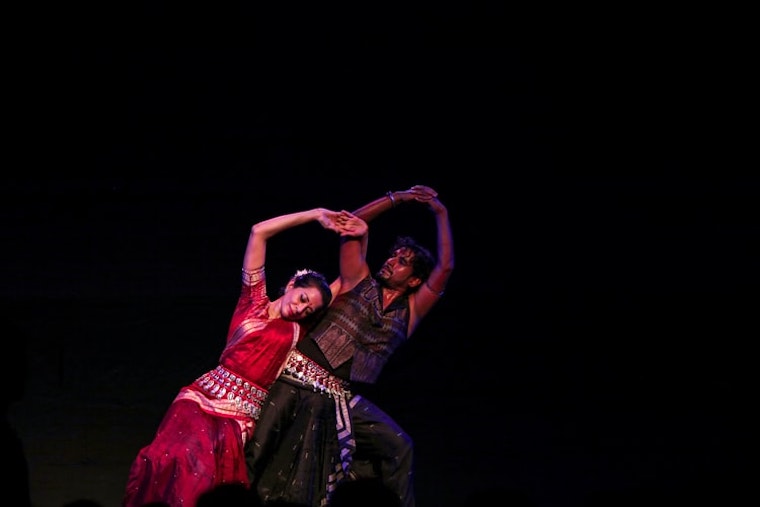 Stock photo of dancers. Photo via Kunal Parmar/Unsplash
Stock photo of dancers. Photo via Kunal Parmar/Unsplash
You can look out for more details of the programmes here.
The writer of this sponsored article can’t wait to eat home cooked Indian food on Deepavali.
Top image via Sandeep Kr Yadav/Unsplash, wealthvruddi.com, halaal.recipes and STB.
If you like what you read, follow us on Facebook, Instagram, Twitter and Telegram to get the latest updates.
